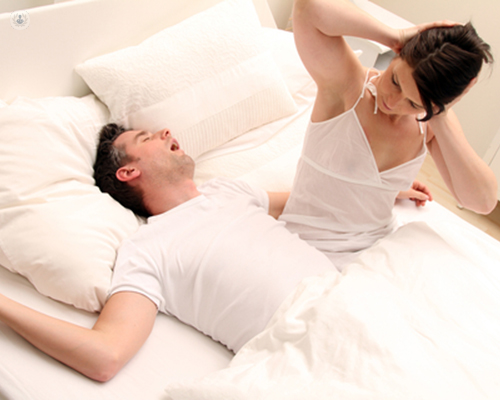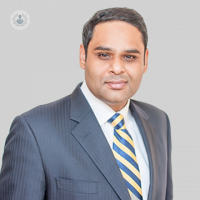Sleep apnoea: what are the risks?
Written by:Obstructive sleep apnoea (OSA) is a condition that affects both adults and children. In most cases, normal breathing is interrupted due to relaxation of the muscles, leading to an interrupted sleep pattern. Sufferers of sleep apnoea may feel exhausted during the day due to the pauses in breathing causing them to come out of their sleep pattern. Often, a person doesn’t know that they have sleep apnoea, only that they often feel tired, or that their partner complains of loud snoring.

Can sleep apnoea be a sign of a more serious problem?
Obstructive sleep apnoea is a common problem, but it can lead to more serious problems.
The lack of sleep caused by sleep apnoea can cause lower concentration levels, meaning you could be at a higher risk of an accident. Sleep deprivation can also lead to problems such as moodiness or even depression, as well as being linked to conditions such as diabetes, heart disease, liver problems and weight gain.
What are the symptoms of sleep apnoea?
Often, a person with sleep apnoea may not realise they have it. The most common way of discovering the symptoms of sleep apnoea is that a partner may complain of snoring during the night, affecting their own sleep pattern.
The main symptoms of sleep apnoea include:
- Loud snoring most nights
- Choking during sleep
- Pauses in breathing
- Sleepiness and fatigue during the day
- Waking up with a sore throat
- Restlessness during the night
- Moodiness
- Headaches in the morning
Can sleep apnoea be cured?
There are a number of ways that obstructive sleep apnoea can be treated. The first thing you should aim to change is to make improvements to your lifestyle. Losing weight, quitting or cutting down on smoking, and reducing alcohol intake will help you to have a more restful night’s sleep. Other treatments provided by your respiratory specialist include:
-
Using a CPAP device
A CPAP device is a Continuous Positive Airway Pressure device that gently applies pressurized air pressure to the airways to keep them from collapsing and causing a blockage. -
A Mandibular Advancement Device (MAD)
This is a type of gum shield that holds the tongue forward in position so that it doesn’t block the back of the throat while sleeping. -
Surgery
This is a less common solution, but may be required if there is a physical problem causing the obstruction.
Can sleep apnoea cause death?
Studies have found that sleep apnoea can be a factor in increased mortality. This can be due to the lack of sleep causing tiredness, and leading to an increased risk of accidents such as while driving.
If you are concerned about sleep apnoea, make an appointment with a respiratory specialist.


